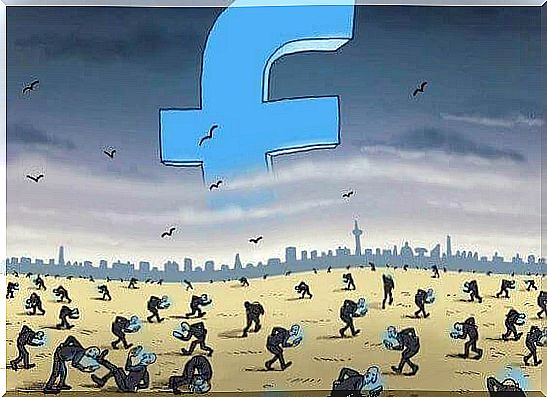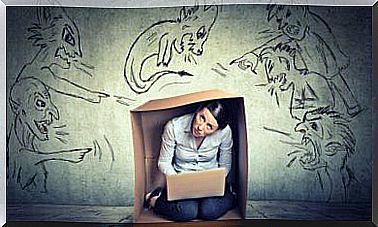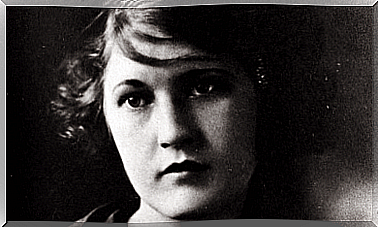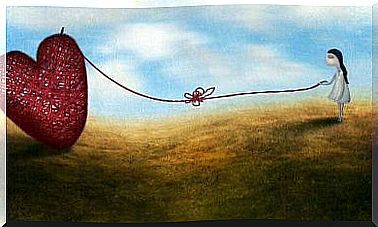How To Concentrate To Stop Wasting Time?
Time is one of those factors which has the power to torment our souls, by its immensity and its finitude. Sometimes it feels like we’ll never get there, as if the days and hours are getting shorter and never enough for all we have to do. We have the feeling that the minutes are like drops of water passing through our fingers and that there is nothing we can do to stop them.
Contrary to what many people believe, much of the time we waste, we waste it working or doing those activities that we call “productive”. This is due to the lack of concentration: even if we are in the process of carrying out the task in question, our state of dispersion means that we take more time than necessary to do it.
“We are born to live, so the most important asset we have is time…”
-Facundo Cabral-
One way or another, the consequence of this perception of time which is never sufficient is the state of anxiety. There is a tension between the way the clock ticks and the need to achieve set goals. Under these conditions, blockages and errors can also appear, which do nothing but increase the delay.
Lack of time and compulsive actions
There is a whole set of compulsive actions that we perform on a daily basis and which consume a good part of our time. We can especially mention the habit of looking at his phone every five minutes. It is very likely that we will not find anything new or important there, but we cannot help ourselves.

It is also common for the same to be done with the computer. If you think about it, you probably make 20 or 30 visits to the same website or to a social network, on which you cannot find new or important information.
Each of us has our repertoire of compulsive or repetitive actions. Some people simply take a break from work to express their fantasy, to look around, or to do something that distracts their emotional attention from the main task they are doing.
Precisely because they are compulsive, these actions are unconscious. They are done without thinking about it and a good part of the time goes with them. They respond to difficulty concentrating, anxiety or a deficient work strategy.
Emotional overload and time
Emotional difficulties also rob us of more time than we think. In addition, they rob us of the availability and motivation that would allow us to focus on our goals. Unresolved issues involve an emotional charge that silently carries over to everything we do.

We have all left out a task at hand, for one reason or another, and it has taken a place and settled in our minds. Since then, in a repetitive and anarchic manner, it has invaded the space of our consciousness. Out of this thought, states of anxiety are born that have nothing to do with the situation you were in at the time.
Unresolved conflicts are a daily problem. They have a strong impact on our ability to concentrate, because they are like annoying noises which grant false truces and which appear at the most inopportune moments, causing the most pleasant situations to fail. In fact, they tele-transport us from the past to the future, leaving aside the sensations that arise from the present situation.
Focus to save time
Time, or rather its perception, is an essentially psychological dimension. Run or stop running, depending on how you are feeling or thinking. A minute is endless at the dentist and passes in a second when you have a good time. And since we are influenced by what is in our mind, it is possible to administer it in a more rational way.
To focus and manage your time better, the first thing to do is recognize and accept that we will always have something to do. It should not be a source of anguish, but it should be seen as an immanent characteristic of life. That said, what follows is to develop a methodology that combines activity and breaks. Dispersion is also a response to fatigue, and the brain has been shown to start to tire after 25 minutes of sustained attention in a single activity.

It is also important that when you are not at work you are doing creative activities. Leisure time is as or even more important than working time. Understand that all these laps of freedom allow you to release your tensions and renew your emotional energy.
Don’t waste those precious moments on repetitive activities, like watching TV. Also, don’t invest your rest in situations that saturate your emotions or numb you: this doesn’t allow you to truly rest. To make the most of your working time, learn to give yourself very high quality rest periods. This will help you focus on the important things, and you will do so with much more discernment.
Images by Tomasz-Alen-Koper, Flora Borsi









